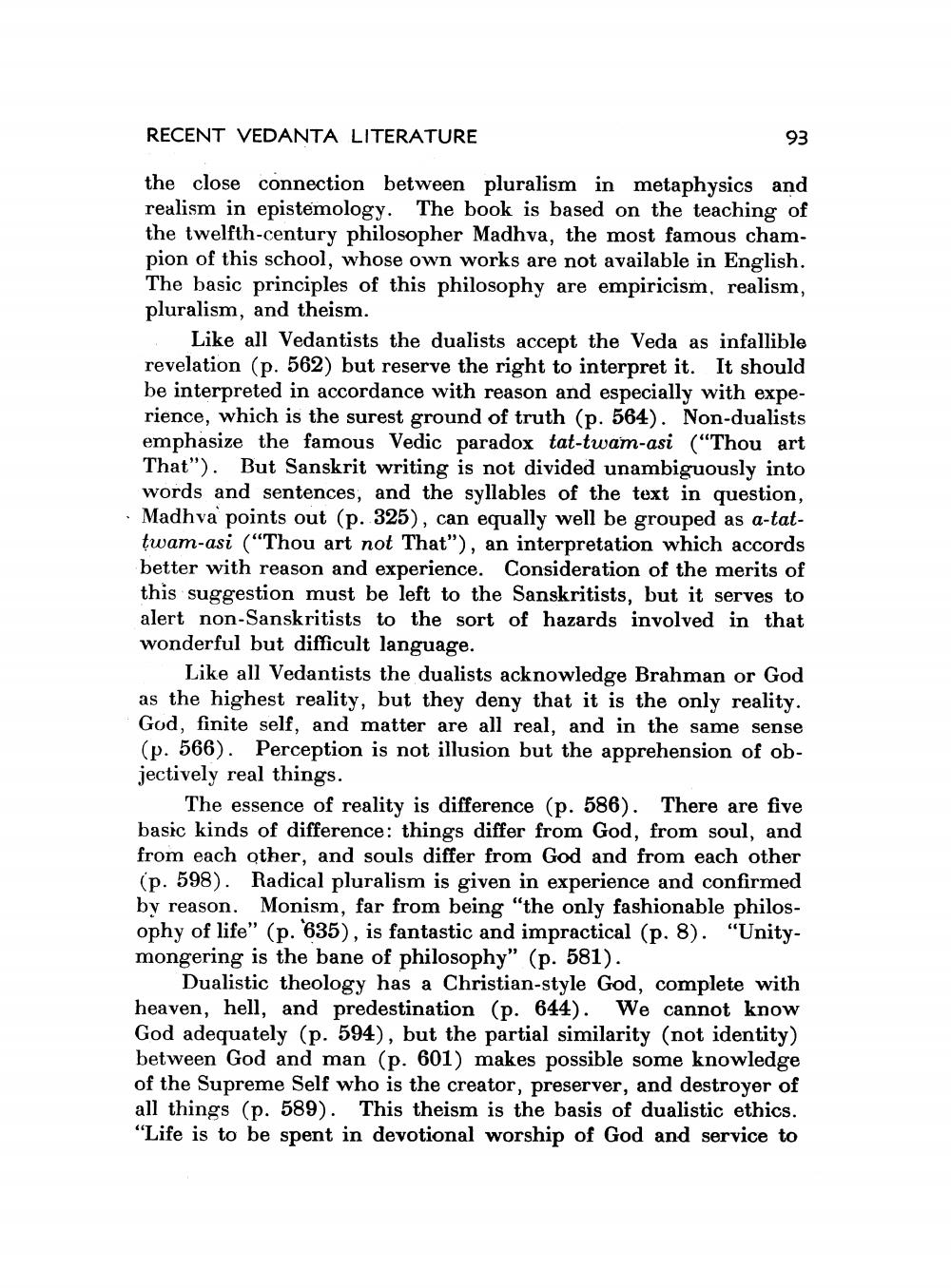________________
RECENT VEDANTA LITERATURE
93
the close connection between pluralism in metaphysics and realism in epistemology. The book is based on the teaching of the twelfth-century philosopher Madhva, the most famous champion of this school, whose own works are not available in English. The basic principles of this philosophy are empiricism, realism, pluralism, and theism.
Like all Vedantists the dualists accept the Veda as infallible revelation (p. 562) but reserve the right to interpret it. It should be interpreted in accordance with reason and especially with experience, which is the surest ground of truth (p. 564). Non-dualists emphasize the famous Vedic paradox tat-twam-asi (“Thou art That"). But Sanskrit writing is not divided unambiguously into words and sentences, and the syllables of the text in question, Madhva points out (p. 325), can equally well be grouped as a-tattwam-asi (“Thou art not That"), an interpretation which accords better with reason and experience. Consideration of the merits of this suggestion must be left to the Sanskritists, but it serves to alert non-Sanskritists to the sort of hazards involved in that wonderful but difficult language.
Like all Vedantists the dualists acknowledge Brahman or God as the highest reality, but they deny that it is the only reality. God, finite self, and matter are all real, and in the same sense (p. 566). Perception is not illusion but the apprehension of objectively real things.
The essence of reality is difference (p. 586). There are five basic kinds of difference: things differ from God, from soul, and from each other, and souls differ from God and from each other (p. 598). Radical pluralism is given in experience and confirmed by reason. Monism, far from being "the only fashionable philosophy of life" (p. 635), is fantastic and impractical (p. 8). "Unitymongering is the bane of philosophy" (p. 581).
Dualistic theology has a Christian-style God, complete with heaven, hell, and predestination (p. 644). We cannot know God adequately (p. 594), but the partial similarity (not identity) between God and man (p. 601) makes possible some knowledge of the Supreme Self who is the creator, preserver, and destroyer of all things (p. 589). This theism is the basis of dualistic ethics. "Life is to be spent in devotional worship of God and service to




